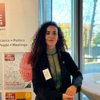-

Rise and Scantox cease conducting animal testing in Stockholm
Access to in vivo toxicology services is significantly decreasing in the Stockholm area as Rise shuts down animal testing and Scantox reorganizes. ”The costs are high, and demand is weak”, says the division manager at Rise to Life Science Sweden.
-

Thomas Eldered: ”Innovation is the key”
Thomas Eldered speaks in a web clip about the challenges facing the life science sector in the future and what he, as an investor, finds most interesting in new companies.
-

Drug development booms in Medicon Valley
When it comes to developing new medicines, the Öresund region is one of the top performers in the EU. Companies working on commission for pharmaceutical companies are highlighted as a success factor. “Everyone has heard of Novo Nordisk, but these companies are unknown to people outside the industry despite being the golden vein of the life science sector,” says Anette Steenberg, CEO of the cluster organisation MVA.
-

The key to successful collaboration between industry and academia
Why is collaboration between industry and academia necessary in the life sciences sector? What obstacles exist, and what is the key to successful collaboration?
-

Danish obesity success causes recruitment problems in southern Sweden
The substantial expansion of Danish Novo Nordisk is affecting companies in southern Sweden, which are finding it increasingly difficult to compete for attractive staff.
-

“Conducting research at universities is becoming more and more like working at a research hotel”
The government wants Swedish research to focus on excellence and innovation, but can the two be combined? Life Science Sweden talks to Anna Falk, a professor at Lund University, about research policy, the constant hunt for funding in academia and what constitutes ‘fine research’.
-

Anna Törner: ”Orphan Designation – the "petite robe noire" of drug development”
It is easy to cling to various regulatory incentives, like orphan designation, and other expedited pathways, without understanding what they truly mean or whether they are indeed right (or wrong) for the current project, Anna Törner writes in a column.
Få tillgång till allt innehåll på Life Science Sweden
Ingen bindningstid eller kortinformation krävs
Redan prenumerant? Logga in
Gäller endast personlig prenumeration.
Kontakta oss för en företagslösning.